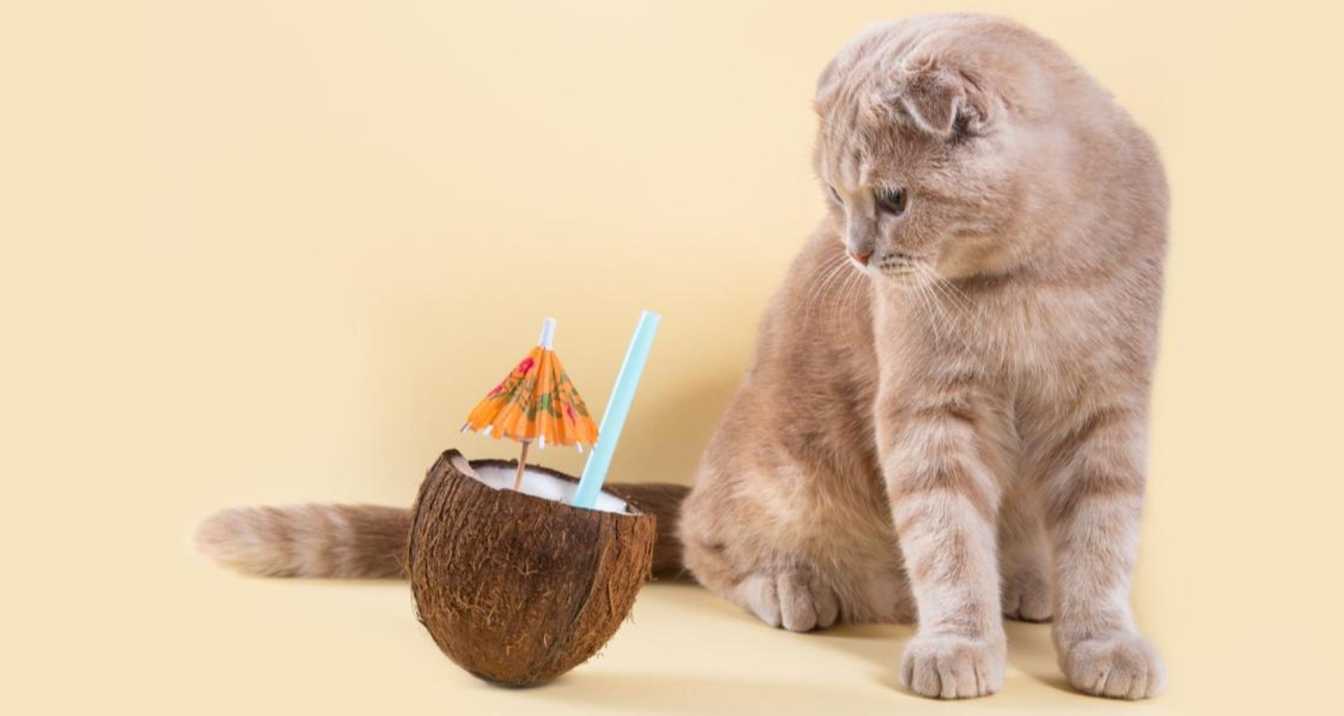Coconut milk is a popular non-dairy beverage made from the grated pulp of mature coconuts. It’s known for its rich, creamy texture and is often used in cooking and baking. But when it comes to our feline companions, the question arises: Can cats drink coconut milk safely?
The short answer is that while coconut milk is not toxic to cats, it is not particularly beneficial. Cats are obligate carnivores, meaning their diet should primarily consist of meat. Coconut milk contains fats and oils that can be hard for cats to digest, potentially leading to stomach upset or diarrhea. Therefore, it’s best to offer it only in very small amounts.
What is Coconut Milk?
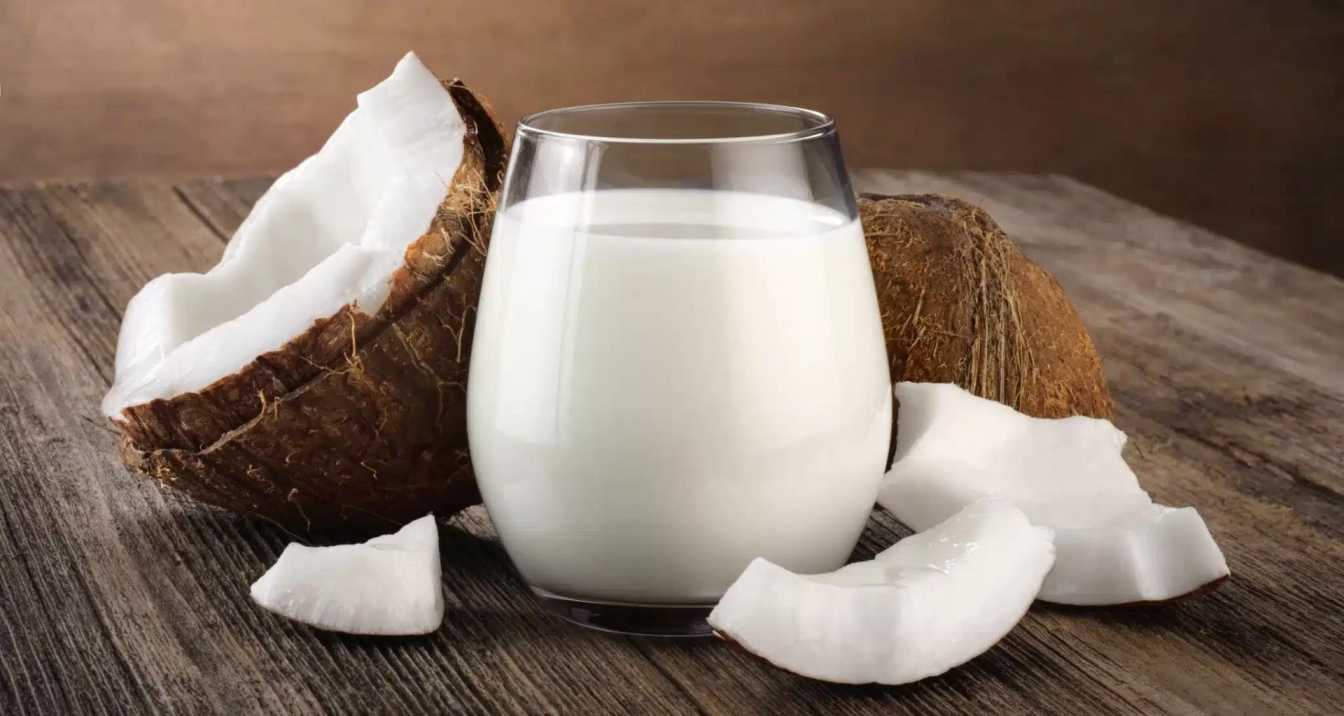
Coconut milk is a creamy, white liquid made from the grated pulp of mature coconuts. It is a popular dairy-free alternative used in various cuisines, especially in Southeast Asia, known for its rich flavor and thick consistency.
A Look at Coconut Milk Ingredients
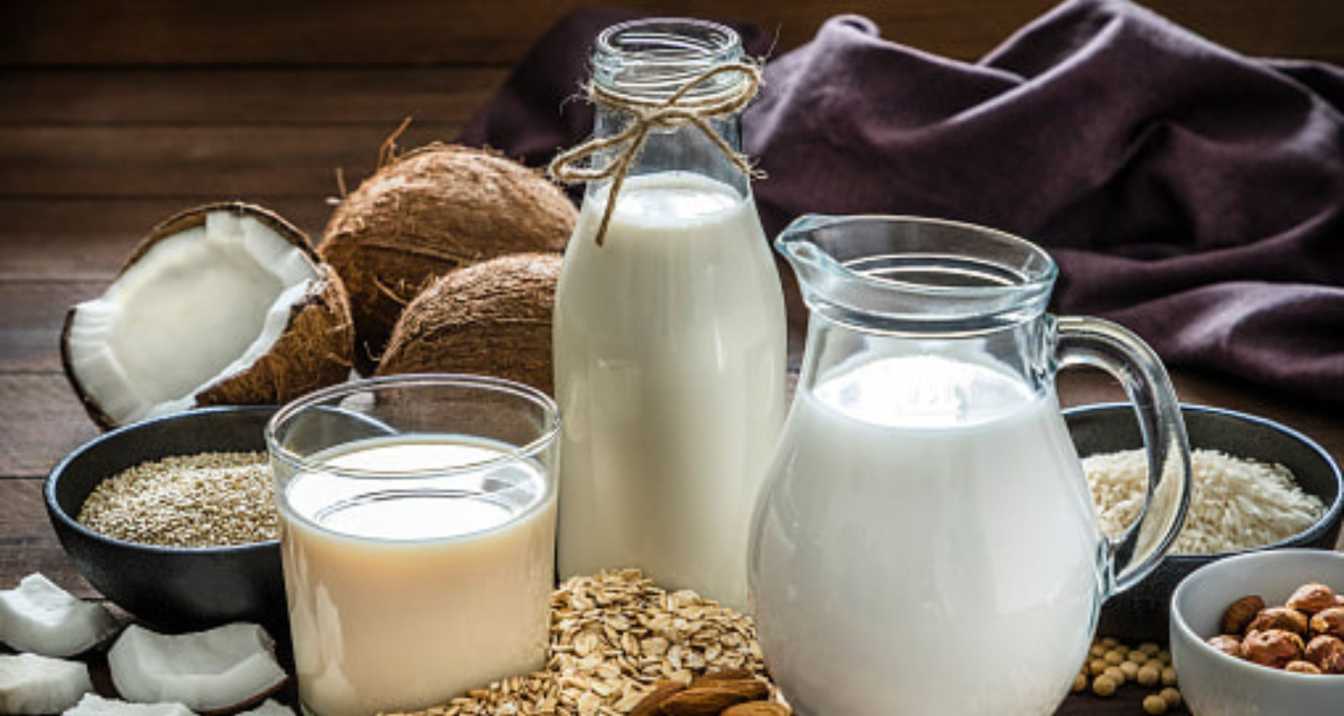
Coconut milk is made from the grated pulp of mature coconuts and includes water, coconut cream, and sometimes preservatives or sweeteners. It contains fats, mainly medium-chain triglycerides (MCTs), which are hard for cats to digest. Coconut milk also has small amounts of vitamins C, E, and B, and minerals like iron, selenium, calcium, magnesium, and phosphorus. However, these nutrients are not in forms or amounts suitable for cats. While it’s nutritious for humans, coconut milk does not meet a cat’s dietary needs. Always consult your veterinarian before giving your cat new foods like coconut milk.
Read more: Can Cats Drink Oat Milk
Nutritional content
Nutritionally, coconut milk contains fats, primarily medium-chain triglycerides (MCTs), and provides vitamins and minerals such as vitamin C, E, B vitamins, iron, selenium, and magnesium. While these nutrients benefit humans, they may not suit a cat’s dietary needs.
Understanding what coconut milk is and its nutritional content is crucial when considering its suitability for your cat.
Is Coconut Milk Safe for Cats?
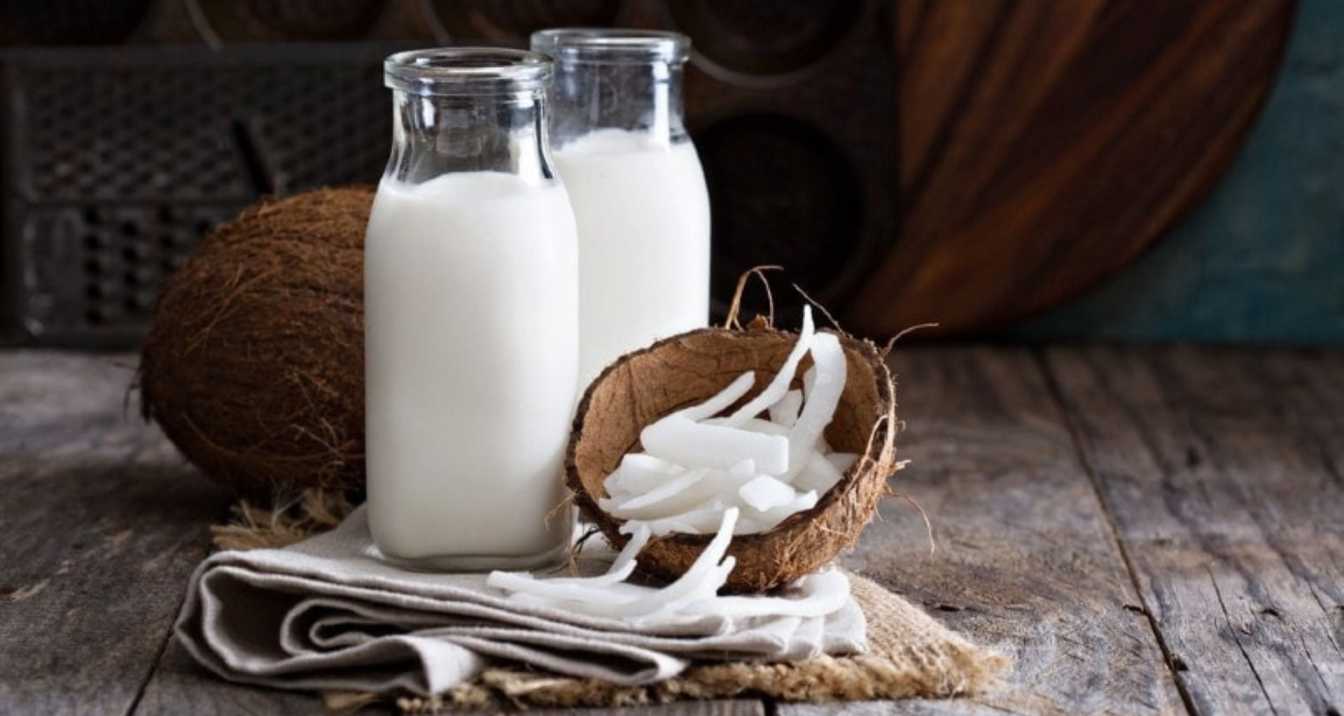
When considering if coconut milk is safe for cats, it’s important to note that it is not toxic but not particularly beneficial either. Cats are obligate carnivores, meaning their diet should primarily consist of meat. Coconut milk contains fats and oils that can be difficult for cats to digest, potentially leading to stomach upset or diarrhea.
How Much Coconut Milk Can Cats Safely Consume?
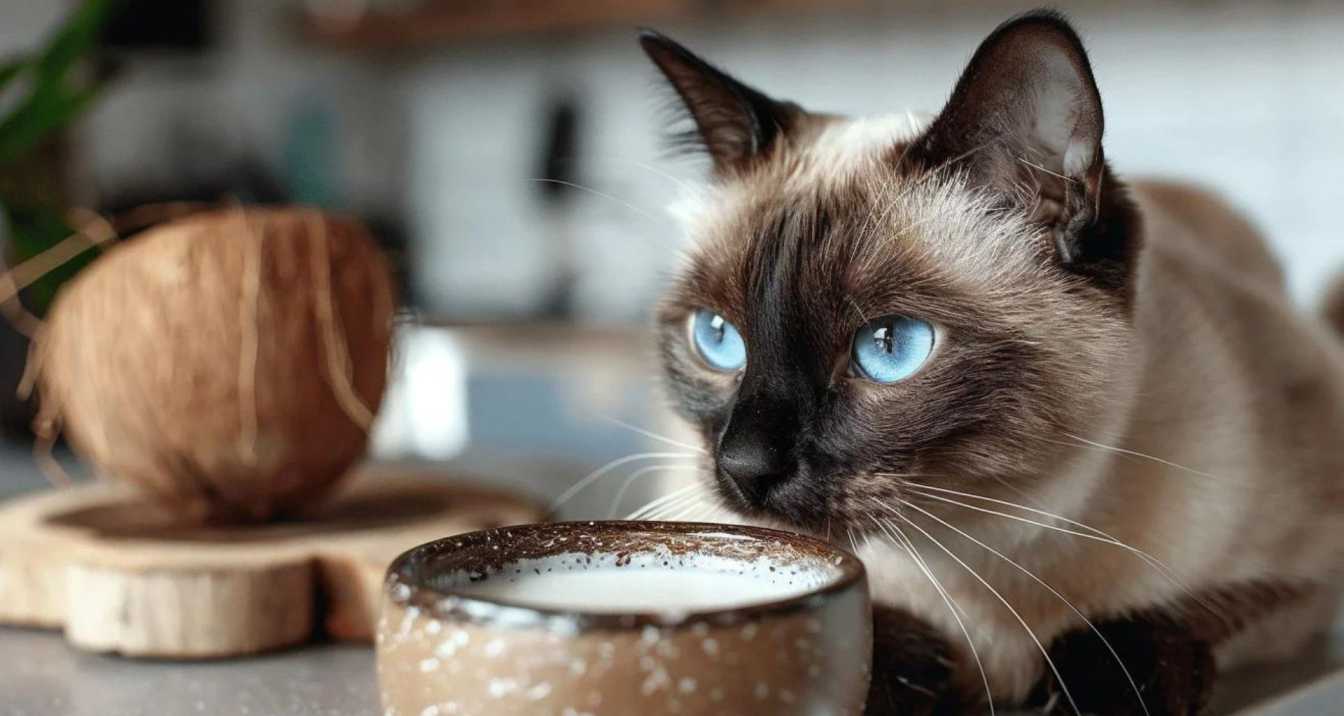
When it comes to giving cats coconut milk, it’s important to do so in moderation. While coconut milk is not toxic to cats, it is not a necessary part of their diet and can cause digestive issues. If you choose to give your cat coconut milk as an occasional treat,
follow these guidelines:
Small Amounts Limit the serving to a teaspoon or less. Larger amounts can lead to stomach upset, vomiting, or diarrhea. Infrequent Treat Offer coconut milk only occasionally, not as a regular part of their diet. Monitor for Reactions Watch your cat for any signs of discomfort or adverse reactions after consuming coconut milk.
Potential risks
While coconut milk might offer some hydration and a small amount of nutrients, it does not provide the essential nutrients that cats need. Therefore, it’s best to avoid giving your cat coconut milk regularly. Always consult with your veterinarian before introducing any new foods into your cat’s diet.
How Does Coconut Milk Affect a Cat’s Digestive System?
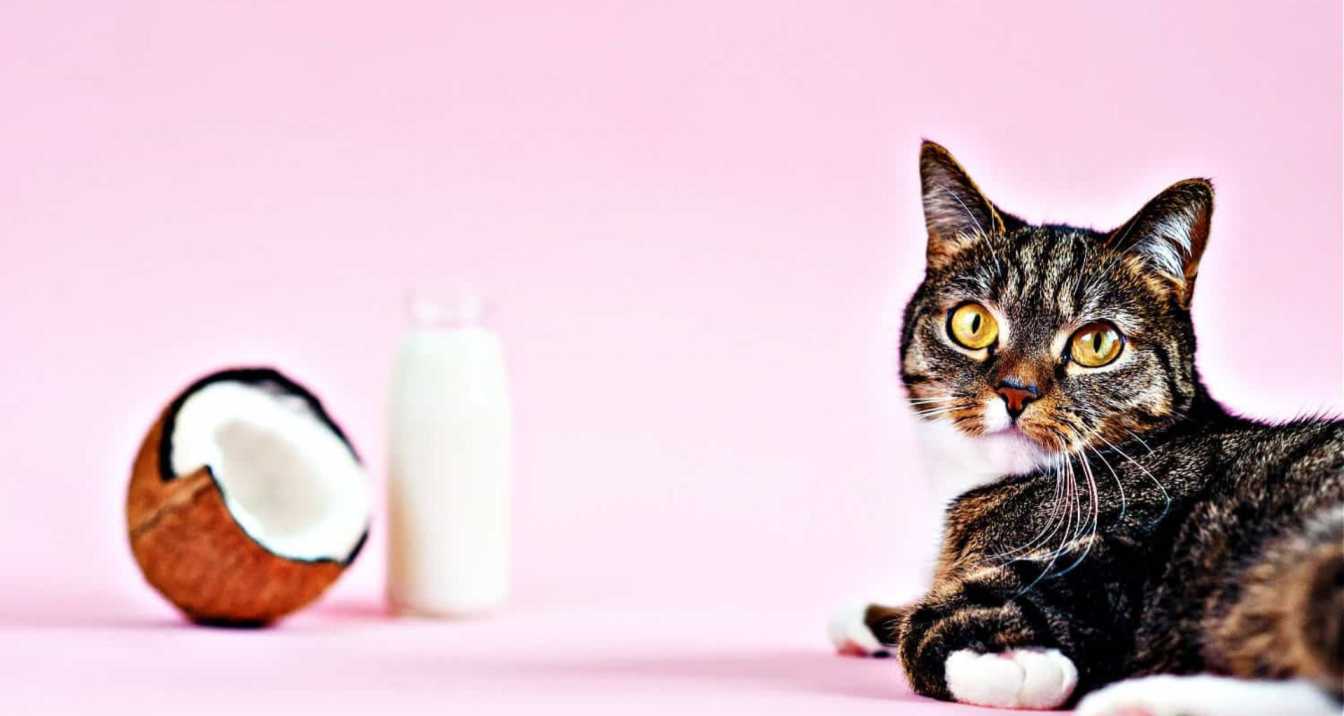
Coconut milk can have various effects on a cat’s digestive system, primarily due to its fat content and the cat’s natural dietary requirements.
Digestive Considerations
- Cats are obligate carnivores and their digestive systems are designed to process meat, not plant-based foods like coconut milk.
- The fats in coconut milk can be difficult for cats to digest, leading to potential digestive issues.
Common Side Effects
- Stomach upset, including vomiting and diarrhea.
- Increased risk of pancreatitis due to the high-fat content in coconut milk.
Nutritional Needs of Cats
Cats have unique dietary requirements as obligate carnivores, needing nutrition primarily from animal-based proteins and fats. They require high protein for muscle health and taurine, an essential amino acid found in meat, which is vital for heart and eye health. Coconut milk lacks taurine and does not provide the complete range of vitamins and minerals such as vitamins A, D, and calcium that cats need. Therefore, coconut milk is unsuitable for a balanced feline diet.
Alternatives to Coconut Milk for Cats
When considering Can Cats Drink Coconut Milk, it’s essential to explore safer and healthier alternatives. While coconut milk is not toxic, it is not ideal for feline consumption. Here are some better options:
| Alternative | Description |
| Water | The best and simplest alternative. Cats need plenty of fresh water. |
| Cat-specific milk | Formulated lactose-free milk designed for cats. |
| Broth | Plain, unsalted chicken or beef broth as a hydrating treat. |
What to Do if Your Cat Drinks Coconut Milk
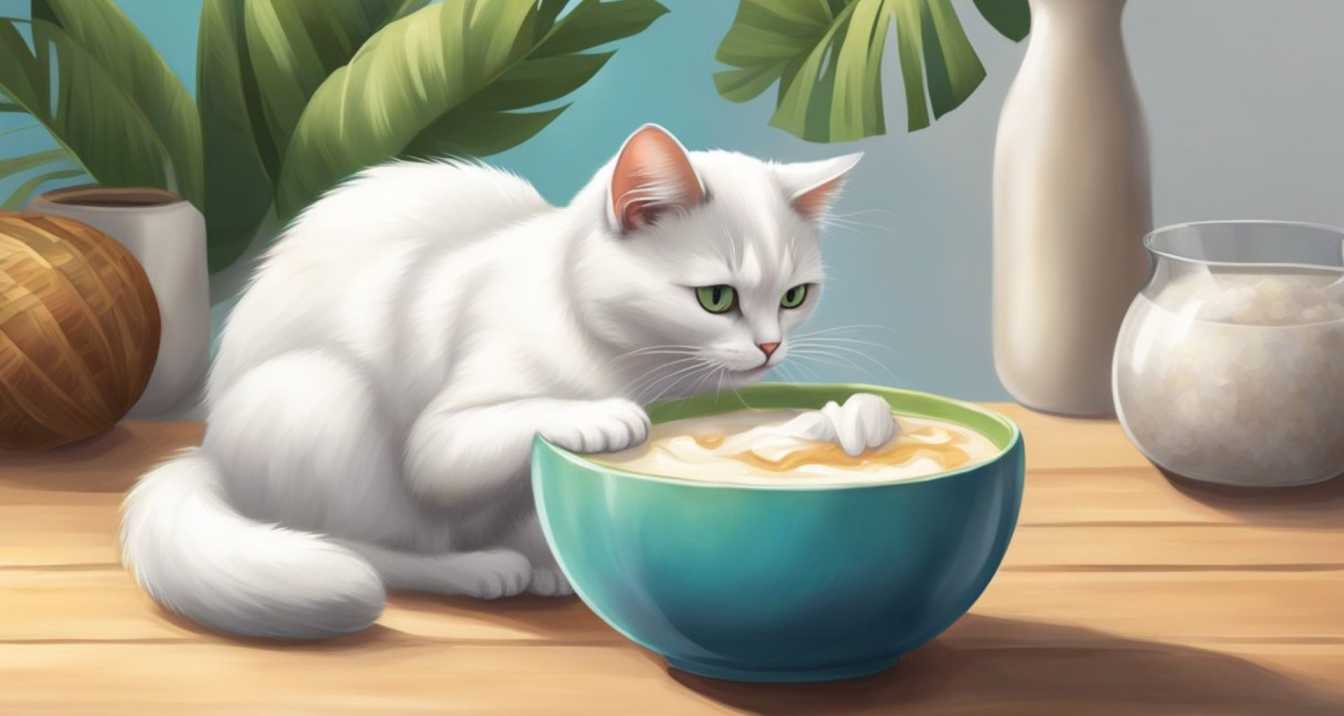
If your cat has consumed coconut milk, it’s important to monitor them closely for any adverse reactions. Here’s what you should do:
- Monitor for Symptoms:
- Watch for vomiting or diarrhea.
- Look for changes in behavior, such as lethargy or discomfort.
- Provide Fresh Water:
- Ensure your cat has access to plenty of fresh water.
- Contact Your Veterinarian:
- Seek advice if you notice severe symptoms or if a large amount is consumed.
- Provide details about the amount and type of coconut milk consumed.
- Avoid Future Consumption:
- Keep coconut milk and other unsuitable foods out of reach.
Conclusion
Understanding the question, Can Cats Drink Coconut Milk, helps pet owners make informed decisions about their cat’s diet. In conclusion, it’s best to avoid giving your cat coconut milk regularly and instead opt for safer alternatives like water, cat-specific milk, or plain broth. Always monitor your cat for any adverse reactions if they accidentally consume coconut milk and consult your veterinarian if necessary. Making informed choices will ensure your feline friend stays healthy and happy.
FAQ
Can Coconut Milk Cause Allergies in Cats?Yes, coconut milk can cause allergies in cats. Signs include itching, swelling, and digestive issues. Introduce any new food, including coconut milk, in small amounts and monitor your cat. |
How Much Coconut Milk is Safe for Cats?It’s best to avoid giving cats coconut milk. If offered, limit to a teaspoon and watch for adverse reactions like an upset stomach. |
Can Kittens Drink Coconut Milk?Kittens should not drink coconut milk. They need proper kitten milk replacement formulas or their mother’s milk. |
Are There Any Health Benefits of Coconut Milk for Cats?Coconut milk does not provide significant health benefits for cats. They require animal-based proteins and specific nutrients not found in coconut milk. |
